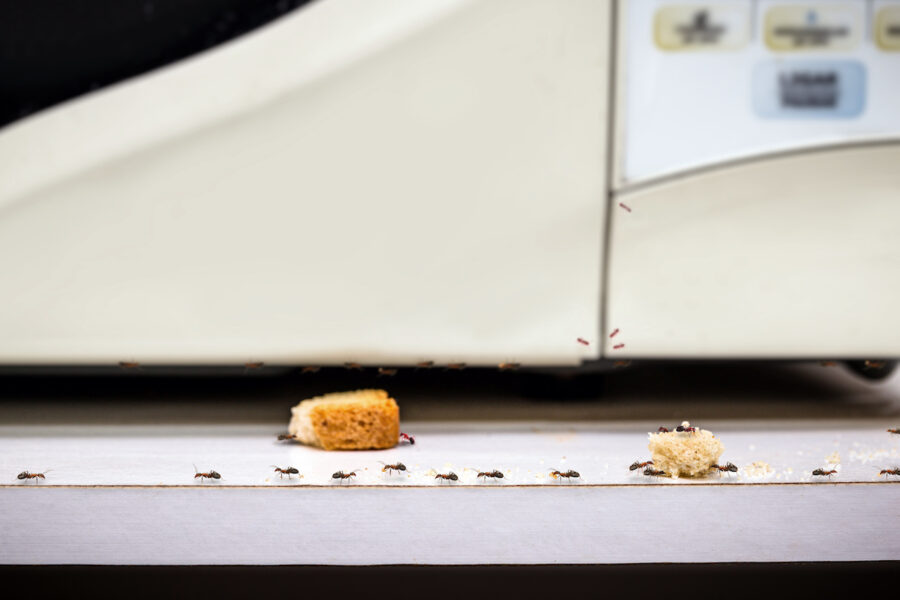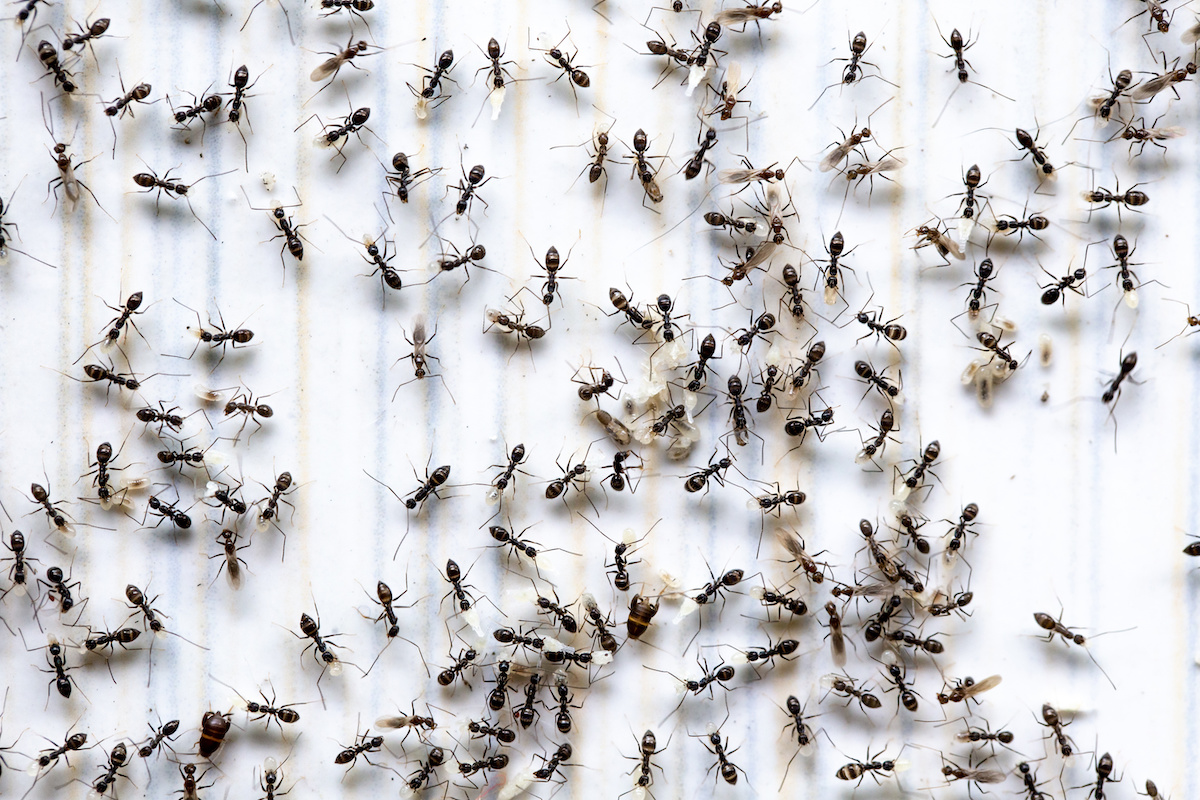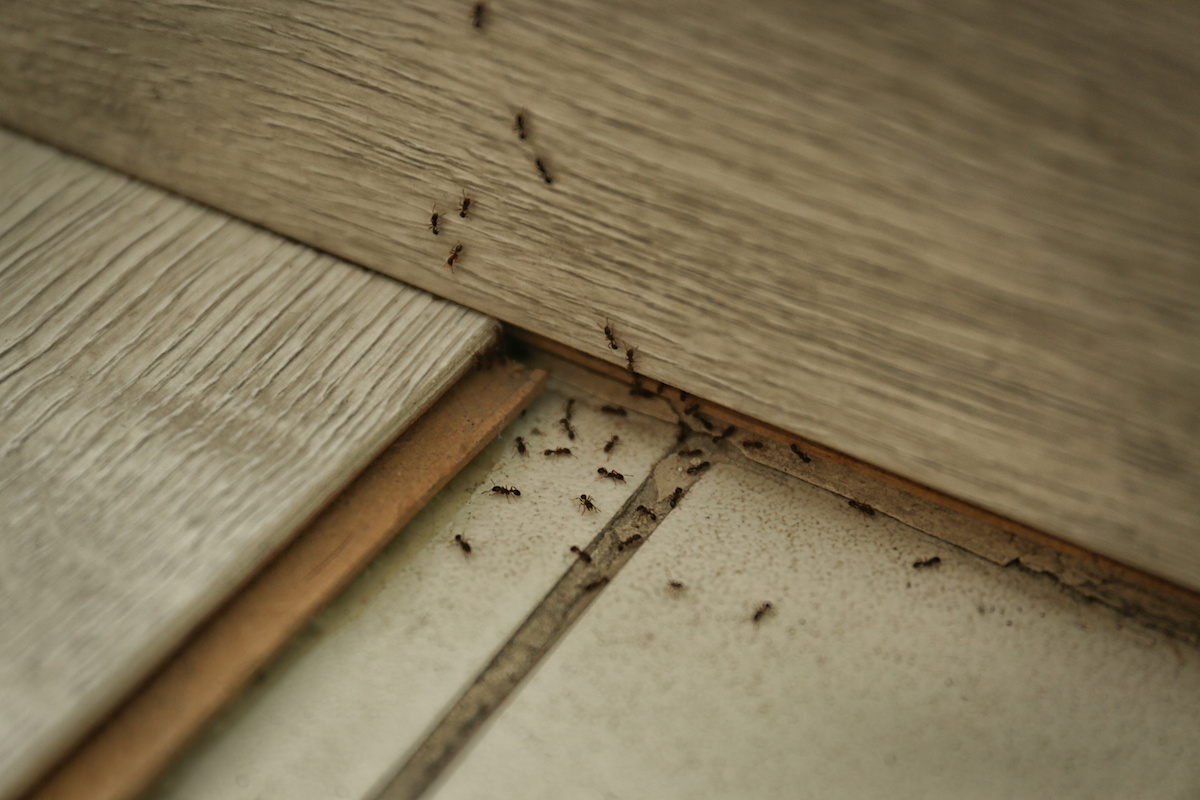
Ants are notorious for invading homes, seeking out food sources, and establishing colonies in various areas. While these tiny pests may seem harmless at first glance, they can quickly become a nuisance, contaminating food, damaging property, and even posing health risks. Fortunately, there are proactive steps homeowners can take to keep ants out of their homes and maintain a pest-free environment.
In this blog, James River Pest Solutions shares valuable insights and practical tips to help you prevent ant infestations and protect your home from these unwanted intruders.
Understanding Ant Behavior
Before delving into prevention strategies, it’s essential to understand the behavior of ants and what attracts them to your home. They are highly social insects. They communicate with each other through chemical signals. This allows them to forage for food, establish trails, and locate suitable nesting sites. They are attracted to a wide range of food sources. This includes sugary substances, crumbs, grease, and even pet food. Finally, they are opportunistic scavengers. This means the are constantly searching for new sources of food and water to sustain their colonies.

Dangers of Ants in Your Home
The presence of ants in your home can pose several dangers, including:
- Food contamination: Ants are attracted to food sources and can contaminate them by crawling over surfaces and leaving behind bacteria and pathogens from other areas they have visited, potentially leading to foodborne illnesses.
- Property damage: Certain species of ants can cause structural damage to wooden components of your home. They do this by tunneling through wood to build nests. Over time, this activity can weaken structural integrity and lead to costly repairs.
- Electrical hazards: Ants are known to be attracted to electrical wiring. They can create nests inside electrical equipment or appliances, increasing the risk of short circuits, malfunctions, and electrical fires.
- Health risks: Ants can bite or sting humans and pets, causing discomfort, allergic reactions, and in some cases, severe reactions requiring medical attention. Additionally, the presence of them can exacerbate respiratory conditions.
- Crop damage: In agricultural settings, certain species of ants can damage crops. They feed on plant sap, seeds, or fruit, leading to reduced yields and economic losses for farmers.
- Disruption of outdoor activities: Outdoor infestations of ants can make it challenging to enjoy outdoor spaces, such as patios, decks, and gardens, as they may swarm around food, picnics, or outdoor dining areas.
Common Entry Points for Ants
Ants are adept at finding their way into homes through various entry points. They exploit even the tiniest cracks, gaps, or openings in the exterior structure. Some common entry points include:
- Cracks and gaps around doors and windows: Ants can squeeze through tiny openings around doors and windows, especially if they are not properly sealed or weather-stripped.
- Gaps in the foundation: Small cracks or gaps in the foundation of the home provide easy access for ants to enter from the exterior.
- Vents and utility lines: Gaps around utility lines, vents, and pipes provide entry points for ants to crawl into the home from the outside.
- Crevices in siding: Ants may find their way into homes through gaps or crevices in the siding. This is more true if the exterior siding is damaged or not properly sealed.
- Openings in screens: Damaged or poorly fitted window and door screens can allow ants to enter the home, especially if there are tears or holes present.
- Roof eaves and overhangs: Ants may crawl along roof eaves and overhangs and find their way into the home through openings or gaps in the roofline.
- Thresholds and door sweeps: Gaps or spaces underneath doors, thresholds, and door sweeps can serve as entry points for them to enter the home from the exterior.
- Pet doors: Ants can use pet doors as entry points into the home, especially if they are not properly sealed or fitted.
By identifying and sealing these entry points, homeowners can significantly reduce the likelihood of ant infestations and prevent future incursions into their homes.
Effective Strategies to Keep Ants Out
Now that we understand the behavior of ants and how they gain access to homes, let’s explore some effective strategies to keep them at bay:
Maintain Cleanliness and Hygiene
- Keep your home clean and free of food debris by wiping down countertops, tables, and floors regularly.
- Store food items in airtight containers and promptly clean up spills or crumbs to eliminate potential food sources for ants.
- Empty trash cans regularly and keep outdoor garbage bins tightly sealed to prevent ants from scavenging for food.
Seal Entry Points
- Inspect your home for cracks, gaps, or openings that could serve as entry points for ants. Pay close attention to areas where utilities enter the structure.
- Use caulk or sealant to seal gaps around doors, windows, pipes, and utility lines. This effectively blocks potential entryways for ants.
- Repair damaged screens, vents, or roof eaves to prevent them from gaining access to your home through these vulnerable areas.
Remove Attractants
- Eliminate sources of moisture by fixing leaky faucets, pipes, or appliances. Ants like damp environments.
- Trim vegetation and shrubbery away from the exterior of your home to reduce harborage sites for ants and other pests.
- Keep pet food dishes clean and pick up uneaten pet food. This deters ants from the area.
Use Natural Repellents
- Consider using natural ant repellents such as citrus peels, vinegar, cinnamon, or essential oils (e.g., peppermint, tea tree). This helps deter them from entering your home.
- Place these repellents strategically near entry points, along ant trails, or in areas where ants are. This discourages their presence.
Implement Barrier Treatments
- Apply a barrier treatment of diatomaceous earth (DE) or boric acid around the perimeter of your home. This creates a physical barrier that ants must cross, effectively deterring their entry.
- Alternatively, consider using commercially available ant baits or insecticide sprays labeled for outdoor use. This creates a protective barrier around your home’s exterior.

When to Call a Pro for Ant Removal
Knowing when to call a professional to remove ants from your home can save you time, effort, and frustration. This is especially true when dealing with persistent or large-scale infestations.
Here are some scenarios in which it might be best to seek the assistance of a professional pest control service:
Persistent Infestations
If you’ve tried DIY methods to eliminate ants from your home but the problem persists or recurs despite your efforts, it’s time to call in a professional.
Professional pest control technicians have the knowledge, experience, and resources to effectively identify the underlying cause of the infestation and implement targeted treatments to eradicate ants from your home.
Structural Damage
If you suspect that ants have caused structural damage to your home, such as tunneling through wood or nesting inside walls, it’s essential to enlist the help of a professional pest control service.
Carpenter ants, in particular, are known for causing structural damage, and addressing the issue promptly can help prevent further deterioration of your home’s integrity.
Health Concerns
If you or your family members are experiencing allergic reactions, respiratory issues, or other health problems related to the presence of ants in your home, it’s crucial to seek professional assistance.
Pest control professionals can assess the extent of the infestation, identify potential health risks, and implement appropriate measures to eliminate them and minimize health hazards.
Safety Considerations
Some ant species can deliver painful stings and bites that pose a risk to humans and pets. If you’re dealing with aggressive or venomous ones on your property, it’s best to leave removal efforts to trained professionals. They have the necessary equipment and expertise to handle these pests safely.
Property Management or Commercial Settings
For property managers, landlords, or business owners dealing with ant infestations in rental properties, multi-unit buildings, or commercial establishments, professional pest control services are often the most efficient and reliable solution.
Pest control professionals can develop customized treatment plans tailored to the specific needs and challenges of the property. This helps to protect tenants, customers, and employees from ant-related issues.
Do Your Best to Keep Ants Out of Your Home!
By implementing these proactive strategies, homeowners can keep ants out of their homes and maintain a pest-free environment.
However, if you find yourself dealing with a persistent ant problem, don’t hesitate to seek professional assistance from James River Pest Solutions. Our experienced technicians can assess the situation, implement targeted treatments, and provide ongoing pest management solutions. We’ll ensure your home remains free of ants and other unwanted pests.
With a proactive approach and the right strategies in place, you can protect your home and enjoy peace of mind knowing that ants are kept at bay!